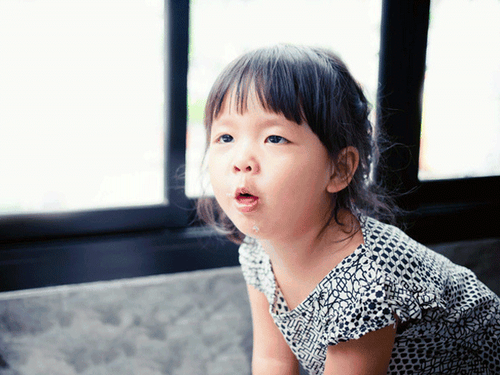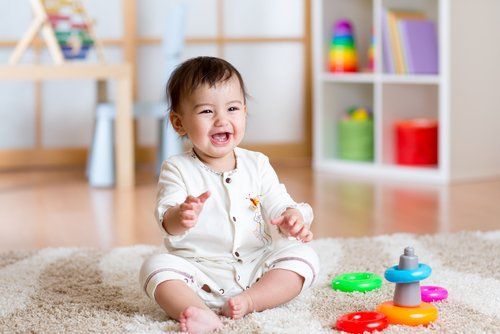This is an automatically translated article.
Overweight is a condition in which your weight exceeds the appropriate level for your height. Obesity is a condition of excessive fat accumulation, which adversely affects health. The main cause of overweight and obesity is due to overeating and lack of exercise. So why do some children eat less and still get fat?
1. Unscientific distribution of eating time
Some people have the notion that children who wake up late may skip breakfast or just drink milk in the hope of reducing food intake. In fact, this should not be because when too hungry but not yet lunch, children will tend to eat more energy. The best advice for all ages is to eat more in the morning, reduce in the afternoon and limit eating late at night. Especially, avoid eating after 8pm, take advantage of your child to go to bed before 10pm to wake up early the next day healthy.
In general, fasting measures to lose weight will cause weight loss, but there is a risk of dangerous metabolic disorders, reduced learning and physical activity, muscle atrophy,... complete Totally unsuitable for children. After those fasting sessions, the body is easy to gain weight back and get fatter due to compensatory eating.
Similarly, fasting will make the body dehydrated, leading to water and electrolyte disturbances in the body. Children who are hyperactive, busy playing but forget to drink water are also very common. Therefore, you should remind your children to drink enough water even when they are not thirsty to ensure normal life activities, avoid being too thirsty and tired, they will easily drink carbonated water or snack on sweets.

Phân bố thời gian sinh hoạt không khoa học khiến trẻ ăn ít mà vẫn béo
2. Drinking milk is not suitable
Limiting milk intake for fear of fat is really a harmful misconception. Milk and dairy products are considered an essential daily food group, because:
Milk protein contains all essential amino acids, especially rich in Lysine, which is essential for growth very little in rice - our main food) Milk is rich in calcium, has a reasonable ratio of phosphorus and lactose, so calcium is easier to absorb Fat in milk also contains vitamins A, D, which are essential vitamins for growth. growth and development. Even obese children need to ensure their height growth to self-regulate their body shape. It is best to use skimmed milk, also known as skim milk, to minimize sugary milk, and not to eat whey. Dosage should be appropriate according to age, for example, a 2-year-old child needs about 400-500 ml of milk per day.
3. Unbalanced diet
Protein, fat or starch when entering the body can be converted into stored fat. However, some parents still believe that eating a lot of meat and fat is the cause of fat, thereby cutting these ingredients in their baby's meals. In fact, eating too much starch and sweets can also cause fat, which is a key ingredient in many children's favorite foods.
Despite being overweight, the baby's diet still has to ensure the nutritional components to have enough energy to operate and develop. The main goal is not for babies to lose weight, but to slow the rate of weight gain of children who eat little and are still fat.
In addition to eating rice and meat, mothers should change their children to eat seafood and beans to supplement protein. For vegetables, you should choose leafy vegetables rather than tubers to avoid increasing starch. Limit frying food, but you should not completely avoid oil, because this is the solvent that dissolves some vitamins A, E, D, K. At least 30 minutes after the main meal, use fresh less sweet fruits. Minimizing snacks for children, processed foods with a lot of fat, snacks, sweets, carbonated drinks,...
4. Sedentary, exercise
Many families still do not pay enough attention to spending time exercising with their children. The current situation shows that children sit and watch TV or play with smart devices almost all of their free time.
Parents need to encourage children to play appropriate sports, especially sports that children must like instead of having to follow their parents' wishes. Every day, you should adopt an active lifestyle, increase walking, take the stairs instead of the elevator, let your child run, jump, ride a bicycle, etc. Teach your children to clean the house, help their parents in the garden as well. These are great ways for children to have the opportunity to exercise and develop necessary skills.

Ít vận động và tập thể dục là một trong những nguyên nhân khiến trẻ ăn ít nhưng vẫn tăng cân
5. Having an extreme attitude towards fat children
If there are children in the family who eat less but still gain weight, parents often have one of the following two attitudes:
One is to ignore the problem, not to care: The notion that the fatter the child the better, the easier the milk will be. injury has existed for a long time. Newborns who eat little and still gain weight are said to be easy to feed. In fact, obese children are often at risk for physical and psychological health problems at an early age. About 20-30% continue to be obese into adulthood, all of which are severe and often difficult to treat. On the contrary, being too afraid, forcing children to diet excessively, and at the same time making fun of and making fun of their children to eat less: In fact, overemphasizing the child's appearance as well as losing weight will do more harm than help. Children are growing and developing, so they cannot be deprived of nutrients such as vitamins and mineral salts, especially protein, calcium,... Inappropriate attitudes of parents will create psychological pressure, leading to Children's low self-esteem and eating behavior disorders (such as binge eating or anorexia nervosa) are difficult to treat. In general, people who care for and interact with overweight and obese children must maintain a caring attitude, not distinguish between obese children and other children, and create healthy eating and exercise habits in their children based on their body. science department.
6. Underestimating overweight - obese children
The growth chart in the health book is a useful tool to monitor the development of the child. However, this chart only reflects the number of weight for age, so it is not possible to correctly assess overweight - obese children. Some children may be too heavy for their age, but this weight is appropriate for their height, so this is a tall, well-balanced child, not an obese child.
In order to properly assess overweight - obesity in children, parents should not only rely on the observation that the infant eats little but still gains weight too quickly compared to the growth chart in the health examination book, but needs to see a doctor. Doctor associated with external signs such as: round face, sagging cheeks, large neckline, thick fat in the abdomen/inguinal thighs/chest/armpits...as well as sweating when exercising.
In summary, because children's bodies are growing and developing, it is not a good idea to lose weight for children, but only reduce the rate of weight gain and ensure height growth with age. Children who eat little but still get fat should be monitored by knowledgeable nutritionists to avoid deficiency of essential nutrients.













